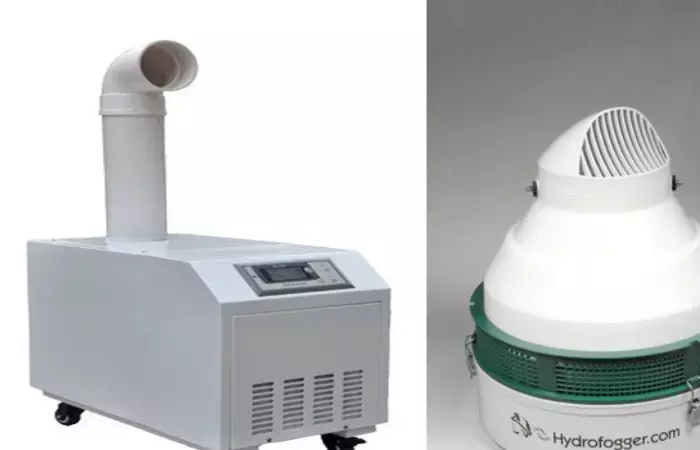
But they serve different purposes.
Choosing the right one depends on your specific needs. To select the right option, you must know the key differences between both these types. You also need to know their uses. In addition, you must also have an idea about how they benefit various settings.
In this guide, we will discuss all these pointers in detail.
These humidifiers are specially designed to handle large spaces. They can maintain precise moisture levels in the space.
They are suitable for large areas. These systems can cover areas like factories, warehouses, and production plants
They are made with heavy-duty materials. Hence, they can withstand tough environments.
They can maintain specific moisture levels for processes that need strict control.
Industrial humidifiers can be tailored to fit the unique needs of different industries.
Keeps moisture stable in hospitals and laboratories for safety and cleanliness.
Maintains freshness, and prevents spoilage in food storage and production.
Protects sensitive electronic equipment from damage caused by dryness.
These are smaller and designed for less demanding settings. They are best for offices, retail stores, and public buildings. They are used in places where maintaining comfort is the primary goal. These systems focus on creating a pleasant environment for people.
1. Moderate Capacity: Suitable for medium-sized spaces like offices, schools, and restaurants.
2. User-Friendly: Easier to install. Also, it is very simple to operate it if compared to industrial systems.
3. Cost-Effective: More affordable. Also, requires less maintenance.
4. Aesthetic Design: Often designed to blend into modern interiors.
Offices: Widely used in workspaces due to its number of benefits. It
Retail Stores: Keeps the environment comfortable for shoppers. Also, protects products like wood furniture.
Educational Facilities: A commercial humidifier helps maintain healthy humidity levels.
Hospitals and Clinics: Enhances patient comfort by preventing dry air.
Industrial: Used in specialized industries where specific conditions are critical. It includes industries like
Commercial: Ideal for spaces where people’s comfort is the main priority, such as offices, stores, and schools.
To choose between an industrial or commercial model, you need to consider some essential factors:
If you’re working in a large space like a factory, an industrial-type humidifier is the better choice. But for smaller spaces, a commercial unit will work well.
Determine whether you need precise moisture control or just want to create a comfortable environment. Industrial units are better for strict control. While commercial systems prioritize comfort.
Industrial humidifiers are more expensive. But they are essential for specific industries. Commercial units are more budget-friendly. They are suitable for general use.
Industrial models require regular upkeep. This is to ensure proper functioning. Commercial units are easier to maintain. Also, their maintenance cost is less.
Let’s discuss the advantages and disadvantages of both one by one:
Pros:
Cons:
Pros:
Cons:
Industrial and commercial units serve different purposes. They cater to varied needs. Industrial options are built for large, demanding spaces. These systems provide precise control. Hence, they are best for specialized industries.
Commercial units, on the other hand, are perfect for smaller spaces. They are more focused on comfort. These units are cost-effective.
By understanding their differences, you can choose the right option that meets your needs and ensures the best results for your environment.
You can get expert advice on both these models from Hydrofogger. Get in touch with our experts to get all the details about these units. We will help you select the right model based on your requirements.
Stay updated with the latest news, tips, and exclusive offers by subscribing to our newsletter! Join our community to receive valuable insights directly in your inbox. Don't miss out—sign up today and enhance your experience with us!